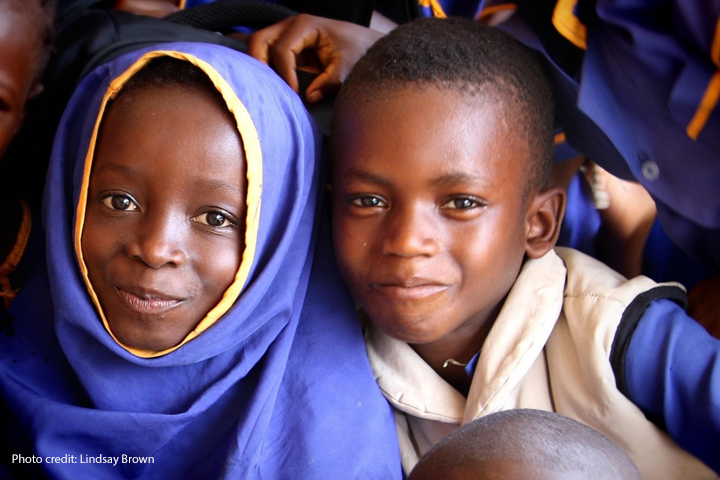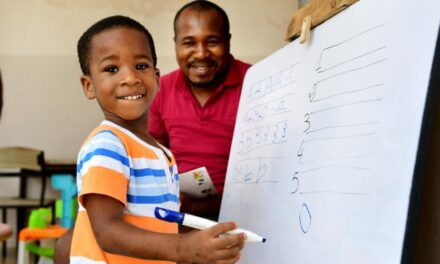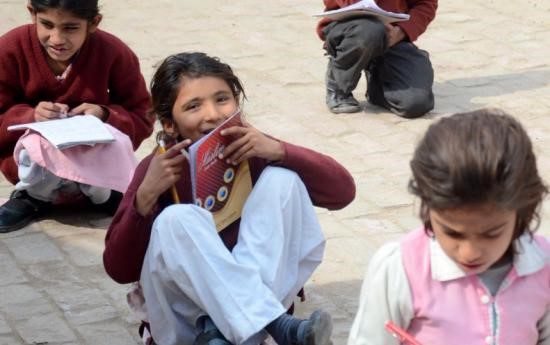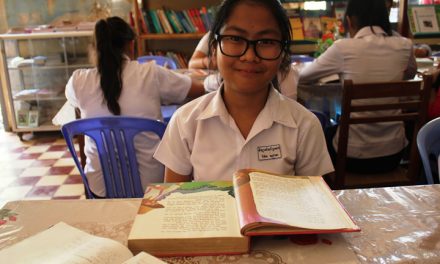This blog is written by Dr Lindsay Brown, Senior Research Scientist at NYU-Global TIES in Steinhardt School of Culture, Education, and Human Development. Lindsay primarily investigates how to support teachers in areas of conflict and crisis with a focus on flexible and scalable teacher professional development strategies. She works mainly in the Middle East and Africa.
The data is in: The COVID-19 global pandemic has been one of the most destructive events for student learning across globe, with the worst effects among the most vulnerable students – those in low-income and/or conflict-affect contexts. Globally, 1.5 billion students in 188 countries were unable to attend school in-person. In the U.S., recent data shows that the nation lost nearly two decades’ worth of progress in educational outcomes. In low-income and conflict-affected contexts, students fared even worse: closures were typically longer, with less effective responses and fewer technological options available. Yet just when development and humanitarian aid is most needed to address these challenges – it funds, among other things, both educational programming and accompanying research – several of the world’s richest countries have announced plans to slash funding. Though rising inflation, the ongoing war in Ukraine, and lingering financial effects of COVID-19 present real economic hardships for national governments, such cuts are nonetheless short-sighted; there are few investments that can rival education in terms of long-term returns to society, both locally and globally.
The World Bank estimates that learning losses from COVID-19, if not effectively addressed, are likely to result in decreased economic growth, higher poverty, and increases in inequality for up to a generation. It’s no surprise, then, that educational experts are fiercely calling for additional instructional support to ameliorate such losses. But calls for remedial education services (such as tutoring) obscure a surprising fact: around the world, there is little evidence as to what kinds and amounts of remedial programming are effective or for whom. This evidence is especially rare in low-income and conflict-affected contexts where students are demonstrating the largest losses. This means that governments and other programme implementers have little to rely on for how to effectively leverage their increasingly limited resources to make the most significant impact on student learning. Beyond ethical obligations to do so, not addressing such learning losses risks destabilising large regions of the world, increasing security risks globally.
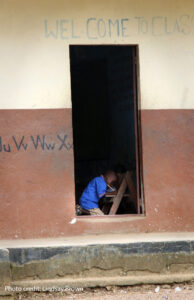 As we outline in a newly-published study in the Journal on Research in Educational Effectiveness, we partnered with the International Rescue Committee in 2016 to address this evidence gap, particularly in generating high-quality evidence of what works to support and retain students in public schools in low-income and conflict-affected contexts. In the Diffa region of the West African country of Niger, where attacks by the Islamic extremist group Boko Haram have had devastating effects on education and economic livelihoods, we evaluated the impact of remedial academic programming infused with social-emotional learning principles on students in Grades 2-4. For example, in addition to literacy and mathematics practices, teachers were trained on how to implement positive classroom management techniques, encourage classroom participation, and create a sense of belonging for students. The implementation of these practices can help create a safe and predictable classroom environment that permits students to feel secure and to focus, particularly in challenging contexts.
As we outline in a newly-published study in the Journal on Research in Educational Effectiveness, we partnered with the International Rescue Committee in 2016 to address this evidence gap, particularly in generating high-quality evidence of what works to support and retain students in public schools in low-income and conflict-affected contexts. In the Diffa region of the West African country of Niger, where attacks by the Islamic extremist group Boko Haram have had devastating effects on education and economic livelihoods, we evaluated the impact of remedial academic programming infused with social-emotional learning principles on students in Grades 2-4. For example, in addition to literacy and mathematics practices, teachers were trained on how to implement positive classroom management techniques, encourage classroom participation, and create a sense of belonging for students. The implementation of these practices can help create a safe and predictable classroom environment that permits students to feel secure and to focus, particularly in challenging contexts.
In order to qualify for tutoring, students were given a screening examination of basic skills in maths and literacy. The results of this test indicated a need for academic tutoring that surpassed both our expectations and our ability to fund all qualifying students’ access to the programme, which led to a student lottery for available slots. After 22 weeks of tutoring, at 4 hours per week, we found that access to the tutoring programme raised students’ academic achievement in maths by 24% and in literacy by 29%, when compared to eligible students who did not have access to tutoring. In programmes where students were offered tutoring that incorporated explicit instruction in social-emotional learning skills, such as mindfulness practices and how to control their impulses, we saw additional benefit in their public school grade averages beyond access to remedial tutoring alone. The programme appears to be equally effective across marginalised groups such as refugees, girls, and low-achieving students.
The results are encouraging. First, the study provides evidence that remedial tutoring – even for relatively short intervals—can make a substantial difference in student learning outcomes in challenging contexts. Second, it suggests that the infusion of social and emotional learning practices can further improve outcomes for students and should be considered for incorporation, particularly in contexts where students are likely to encounter environmental stressors like exposure to armed conflict, food insecurity, exposure to the elements, or high rates of infectious disease.
Despite its promise, however, the programme is not a panacea. Though students with access to tutoring made academic gains, they did not “catch up” in the skills expected by the public school curricula by the end of the tutoring programme. To achieve the ultimate goal of remediation – grade-level proficiency — research on the impact of longer or more intensive programme options is needed. Second, implementation challenges such as teacher strikes at public schools, seasonal migration, and security threats resulted in average student attendance at tutoring classes of only 64 per cent. Yet our analyses showed that if students had attended the entire programme, they would have learned nearly twice as much. However, there is currently little data on what prevents students from attending educational programming or cost-effective strategies for improving attendance.
It’s clear that increased support for education research is urgently needed: according to a recent survey, the majority of the world’s countries are implementing some type of remedial programming in the wake of COVID-19. Yet governments and programme implementers must make critical decisions about how to effectively design and implement such programmes with little evidence, especially for the most vulnerable students who have suffered the greatest losses. Without this evidence, we risk mismanaging the resources currently allocated to such programming and not achieving the significant and lasting

